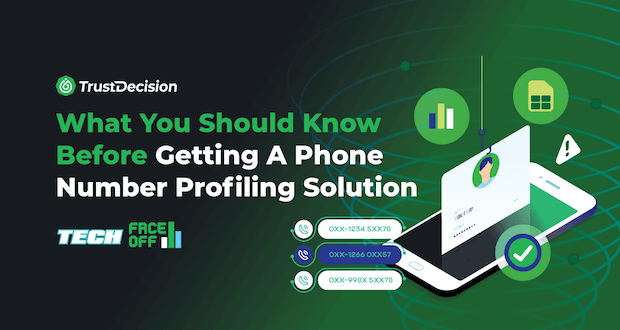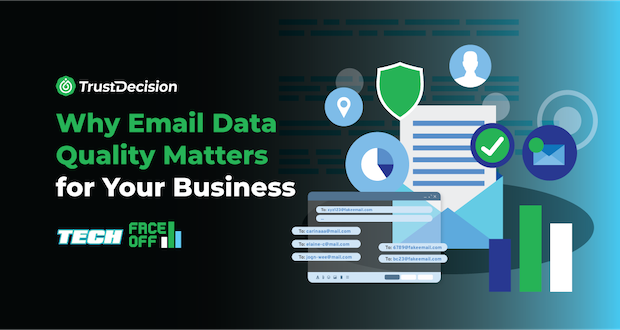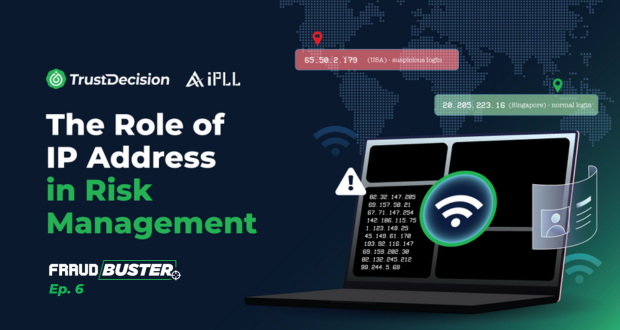You’ve probably seen or heard about it before: fake accounts slipping through defenses, exploiting your promotional campaigns, and skewing your user metrics. Or, maybe worse, fraudsters bypassing your verification systems, hijacking accounts, and racking up chargebacks. Although various factors can contribute to such failures, one critical aspect you simply can’t afford to overlook is verifying a user’s phone number.
Phone number are required during several stage of a digital business — registration, two-factor authentication (2FA), order placement / making payment. Here’s the catch, not all phone numbers are created with genuine intention. Fraudsters are constantly finding new ways to manipulate your systems to carry out various fraudulent activities. Every fake number will costs you — wasted SMS fees, compromised promotions, chargeback penalties and misleading data that skews your strategy.
This is where a phone number profiling solution becomes indispensable. It’s not just about identifying fraud—it’s about empowering you to take back control, cut through the noise, and protect your business from costly vulnerabilities. But before you commit, let’s talk about what you really need to know to make the right choice for your organization.
Identify Your Problem
Before you start shopping around, it’s important to take a step back and really understand the specific fraud issues you’re facing. Phone number profiling can address a wide range of problems, but knowing where to apply it can make all the difference.
Fake Account Creation & Account Takeover
Fraudsters often create fake accounts using disposable or VoIP numbers to exploit promotions, steal loyalty points, or commit identity theft. They may also hijack existing accounts, bypass your two-factor authentication (2FA) with compromised phone numbers or perform SIM-swapping.
In this scenarios, look for a solution that checks phone numbers against databases of known fraud rings, temporary or disposable numbers, and uses risk scoring to identify suspicious account creation attempts. Features like carrier identification can help spot inconsistencies in account ownership or phone number activity.
Payment and Chargeback Fraud
Fake phone numbers fuel chargeback fraud by obscuring the customer's true identity and wasting verification efforts. Fraudsters can easily use disposable or spoofed numbers to claim unauthorized transactions or non-delivery, leaving merchants with no reliable contact to dispute the chargeback. This lack of traceability increases the likelihood of fraudulent claims being upheld, eroding both revenue and trust.
In this case, phone number profiling helps to identify patterns in fraudulent chargebacks by flagging phone numbers linked to high-risk transactions. Features like real-time validation and cross-referencing with known fraud lists can prevent these chargebacks before they happen.
Inefficient Marketing Spend on Fraudulent Leads
Fraudulent phone numbers can lead to wasted marketing efforts, especially when you're targeting fake or low-quality leads. These fake numbers can skew your customer data, leading to poor campaign performance and unnecessary spend on unqualified users.
Phone number profiling helps by flagging suspicious numbers tied to fraud or low-quality leads, allowing you to optimize your marketing spend. By identifying risky phone numbers—whether they're disposable, invalid, or linked to high-risk activity, you can ensure your campaigns reach legitimate, engaged users.
How Does Phone Number Profiling Works
Now that we’ve covered the types of fraud that can arise from fake phone numbers, let’s dive into how a phone number profiling service can help mitigate these risks. Here's how it works:
1. Identifying Basic Information:
Phone Number Profiling first extracts key details such as the country, province, city, and carrier of the phone number. This helps businesses understand the origin of the number, verifies whether the phone number is valid, active and issued by a legitimate carrier.
2. Validating Phone Number Type:
Next, it determines if the number is a mobile phone, landline, VoIP, or restricted number. This is crucial for identifying suspicious numbers, such as those commonly used for fraud, spam, or promotion abuse.
3. Risk Scoring:
Finally, each phone number is assigned a risk score based on all of the above attributes — the system analyzes its behavioral anomalies and historical patterns. This score provides businesses with a clear indication of the phone number’s risk level, which helps to automate fraud prevention actions like blocking, approving, reviewing users for further investigation based on business's own risk preference.
With these available functions, businesses can automatically detect and flag invalid or suspicious phone numbers to strengthen defense against fraud and improve customer experiences. Learn more about Phone Number Profiling how to form a unified user profiling assessment by combining email and IP address profiling.
Phone number verification plays a vital role in fraud prevention, marketing effectiveness and customer experience. It's more so important in today's generation when phone number is used to identify unique user, serve as 2FA and one of the source to verify user's authenticity.
Now that you know the problems phone number profiling can solve and how it works, it’s time to evaluate your options and choose a solution that aligns with your fraud prevention strategy. Your business deserves nothing less.












